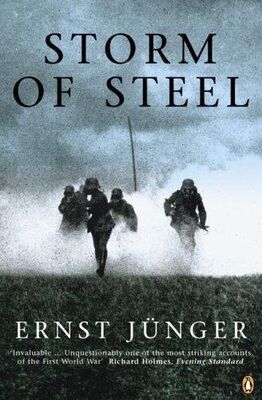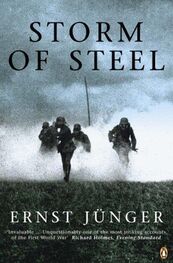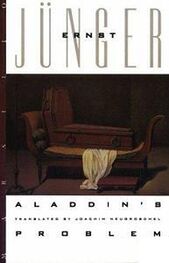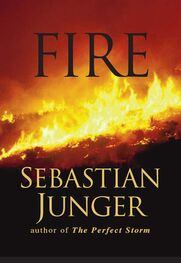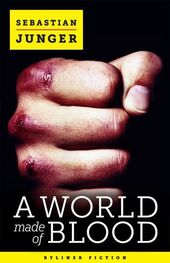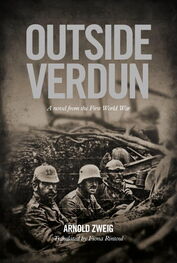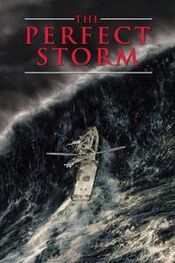Finally, we reached a semi-circular earthworks to the right of Favreuil, from where half a dozen heavy machine-guns were spitting lead at friend and foe alike. Either the noose hadn’t been completely drawn tight, or else this was one last pocket of resistance; we had been lucky to find it. Enemy bullets shattered on sandbags, officers yelled, excited men leaped here and there. A medical officer from the 6th Company ripped my tunic off, and told me to lie down immediately, otherwise I might bleed to death in a matter of minutes.
I was rolled in a tarpaulin and dragged to the entrance of Favreuil, accompanied by some of my soldiers, and some from the 6th. The village was already heaving with British, so it was inevitable that we soon came under fire from very short range. The medical officer of the 6th, who was holding the back end of my tarpaulin, went down, shot in the head; I fell with him.
The little group had thrown themselves flat on the ground, and, lashed by bullets, were trying to creep to the nearest dip in the ground.
I stayed behind on the field, bundled up in my tarpaulin, almost apathetically waiting for the shot that would put an end to this Odyssey.
But even in my hopeless plight I was not forsaken; my companions were keeping an eye on me, and soon fresh efforts were made to rescue me. At my ear I heard the voice of Corporal Hengstmann, a tall blond Lower Saxon: ‘I’ll take you on my back, sir, either we’ll get through or we won’t!’
Unfortunately, we didn’t get through; there were too many rifles waiting at the edge of the village. Hengstmann started running, while I wrapped my arms around his neck. Straight away they started banging away, as if it were a prize-shoot at a funfair. After a few bounds, a soft metallic buzz indicated that Hengstmann had stopped one. He collapsed gently under me, making no sound, but I could feel that Death had claimed him even before we touched the ground. I freed myself from his arms, which were still securing me, and saw that a bullet had drilled through his steel helmet and his temple. The brave fellow was the son of a teacher in Letter near Hanover. As soon as I was able to walk, I called on his parents, and gave them my report on their son.
This discouraging example didn’t deter the next volunteer from making a bid to rescue me. This was Sergeant Strichalsky of the Medical Corps. He put me on his shoulders, and, while a second shower of bullets whistled around us, he carried me safely to the shelter of a little hump of ground.
It was getting dark. My comrades took the tarpaulin off a body and carried me across a deserted stretch of ground, under the jagged flash of ordnance, near or far. I got to know what a terrible thing it is to have to struggle for breath. Smoke from a cigarette that someone ten steps ahead of me was smoking almost choked me.
At last we got to a dressing-station, where my friend Dr Key was in charge. He mixed me some delicious lemonade, and gave me a morphine injection that put me to revivifying sleep.
The wild drive to the hospital the next day was the last difficult challenge to my powers of survival. Then I was in the hands of the sisters, and was able to carry on reading Tristram Shandy from where I had had to put it down for the order to attack.
Friendly solicitude got me safely through a period of setbacks – something that seems to be typical of lung shots. Men and officers from the division came to visit. Those who had taken part in the storm at Sapignies, admittedly, were no more, or else, like Kius, they were in British captivity. With the first shells landing in Cambrai as the enemy slowly gained the upper hand, M. and Mme Plancot sent me a kind letter, a tin of condensed milk they could ill afford to spare, and the only melon their garden had produced. There were bitter times ahead for them. My last batman was in the tradition established by his many predecessors; he stopped with me, even though he wasn’t entitled to hospital rations, and had to go begging down in the kitchen.
During the endless hours flat on your back, you try to distract yourself to pass the time; once, I reckoned up my wounds. Leaving out trifles such as ricochets and grazes, I was hit at least fourteen times, these being five bullets, two shell splinters, one shrapnel ball, four hand-grenade splinters and two bullet splinters, which, with entry and exit wounds, left me an even twenty scars. In the course of this war, where so much of the firing was done blindly into empty space, I still managed to get myself targeted no fewer than eleven times. I felt every justification, therefore, in donning the gold wound-stripes, which arrived for me one day.
A fortnight later, I was lying on the rumbling bed of a hospital train. The German landscape was already bathed in the lustre of early autumn. I was fortunate enough to be taken off the train at Hanover, and was put up in the Clementine infirmary. Among the visitors who soon arrived, I was particularly glad to see my brother; he had continued to grow since his wounding, although his right side, which was where he was hurt, hadn’t.
I shared my room with a young fighter pilot from Richthofen’s squadron, a man named Wenzel, one of the tall and fearless types our nation still produces. He lived up to the motto of his squadron, ‘Hard – and crazy with it!’ and had already brought down a dozen opponents in single combat, although the last had splintered his upper arm with a bullet first.
The first time I went out, I went with him, my brother, and a few comrades who were awaiting their transport, to the rooms of the old Hanoverian Gibraltar Regiment. Since our war-worthiness was being put into question, we felt the urgent need to prove ourselves by vaulting an enormous armchair. We didn’t do too well; Wenzel broke his arm all over again, and the following day I was back in bed with a temperature of forty – yes, my chart even threatened the red line beyond which the doctors are powerless to help. At such high temperatures, you lose your sense of time; while the sisters were fighting for my life, I was in those fever dreams that are often very amusing. On one of those days, it was 22 September 1918, I received the following telegram from General von Busse:
‘His Majesty the Kaiser has bestowed on you the order pour le Merite. In the name of the whole division, I congratulate you.’
About the Author and the Translator
Ernst Jungerwas born in Heidelberg in 1895. He ran away from school to enlist in the Foreign Legion and in 1914 volunteered to join the German army. He fought throughout the war and recorded his experiences in several books, most famously in In Stahlgewittern (Storm of Steel). While admired by the Nazis, he remained critical of them and through novels such as On the Marble Cliffs (1939) sought to understand the impasse into which Germany was heading. Throughout the Nazi period he was a controversial “inner emigrant,” distanced from the regime yet only obliquely in opposition. His most famous later books include Heliopolis (1949), The Glass Bees (1957), Eumeswil (1977), Aladdin’s Problem (1983), and A Dangerous Encounter (1985). He died in 1998.
Michael Hofmannhas translated Joseph Roth, Herta Muller, Zoe Jenny, Wim Wenders, Wolfgang Koeppen, and Franz Kafka. His own books include Corona, Corona and Behind the Lines. He also coedited, with James Ladun, After Ovid.
General
Henri Barbusse, Le Feu (Paris, 1917)
Edmund Blunden, Undertones of War (London, 1928)
Geoff Dyer, The Missing of the Somme (London, 1994)
Paul Fussell, The Great War and Modern Memory (New York, 1975)
Читать дальше